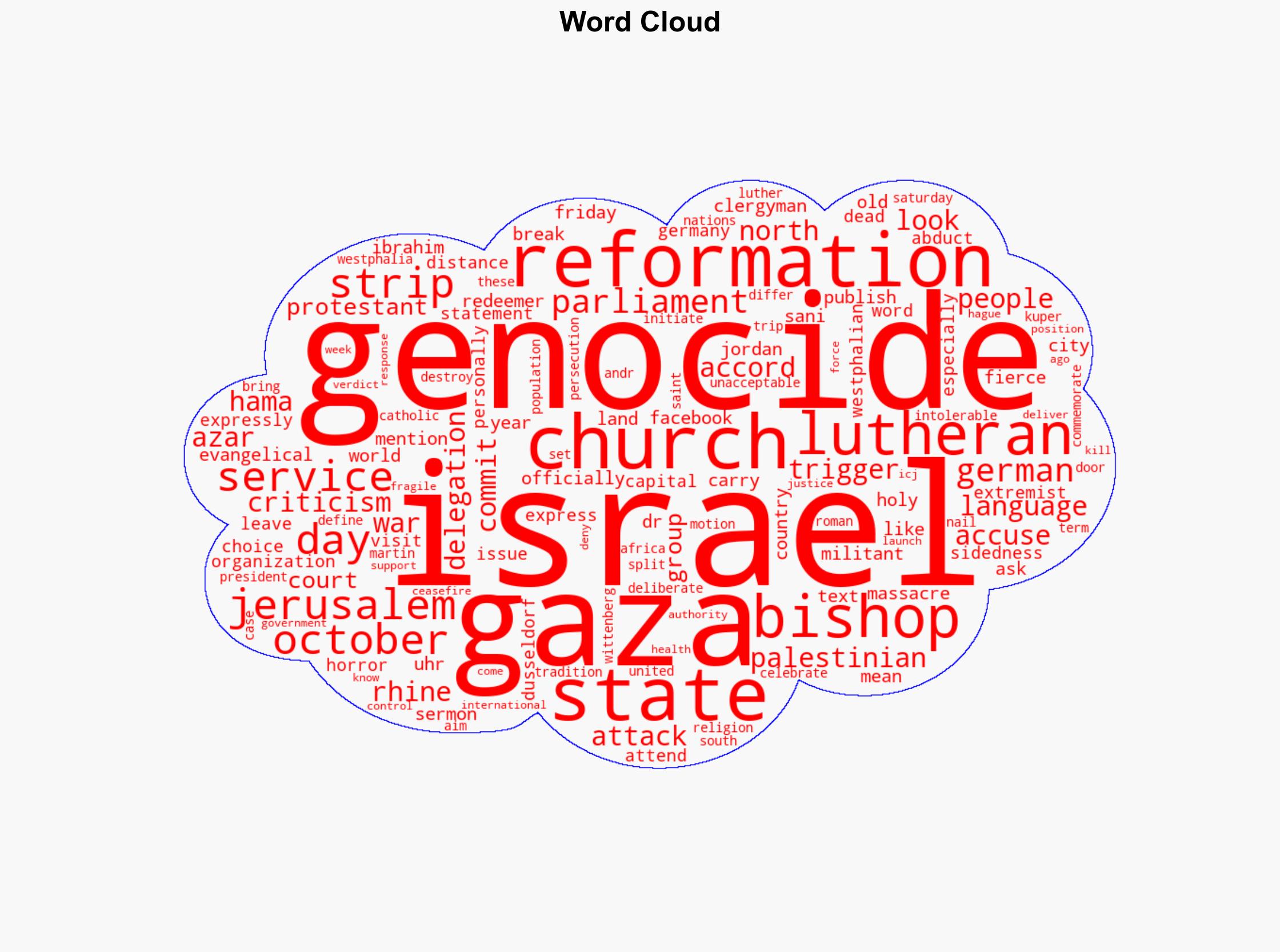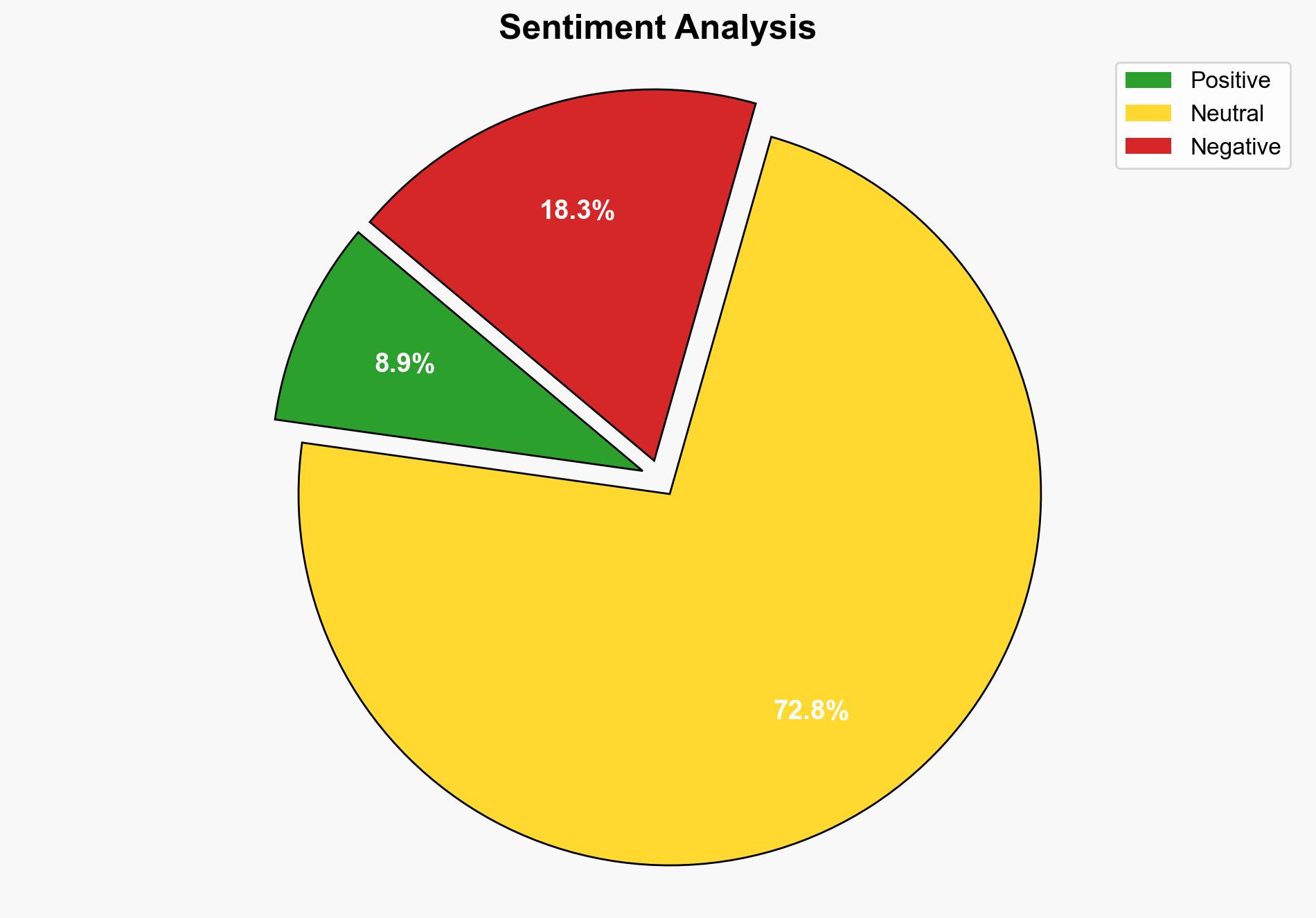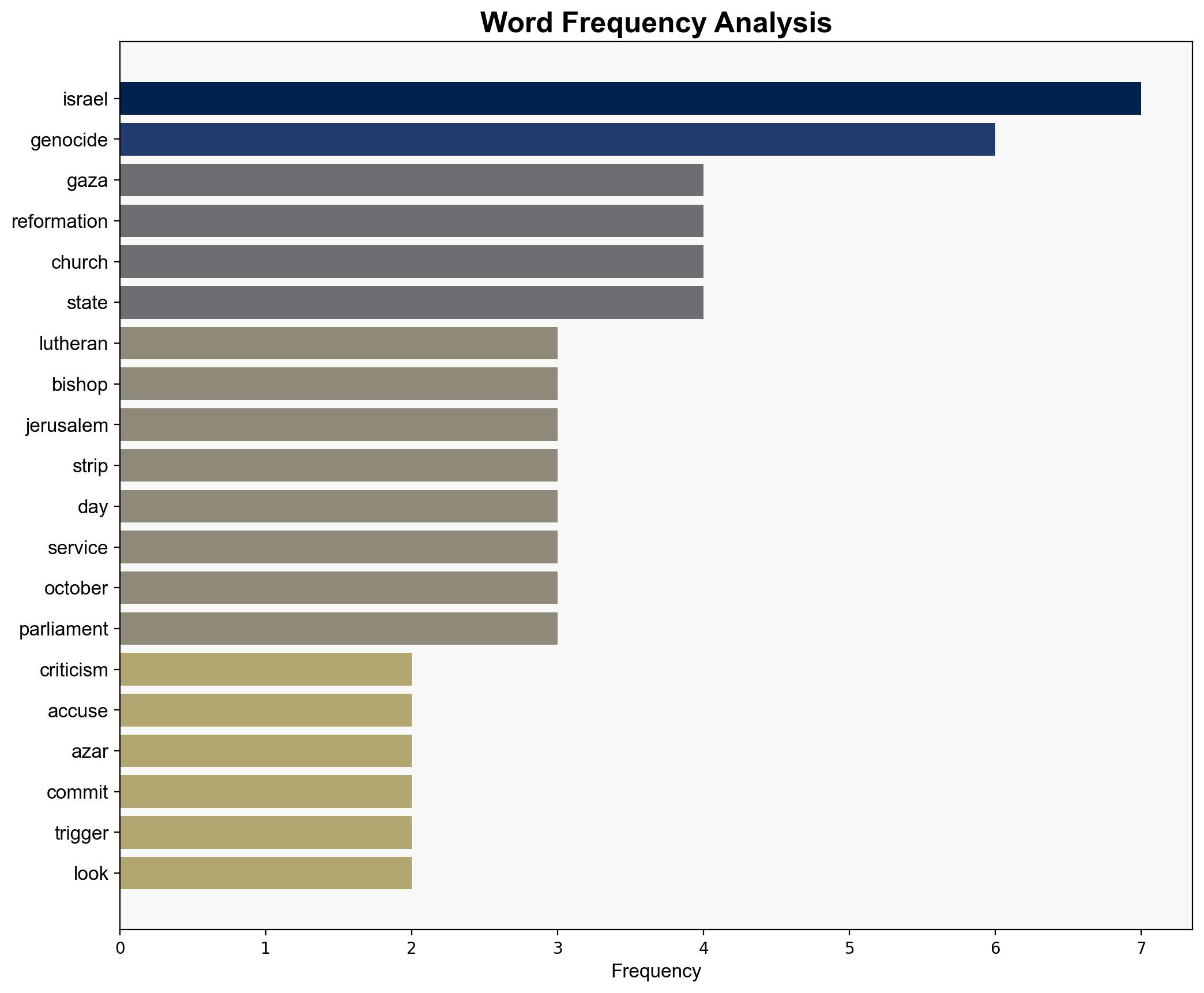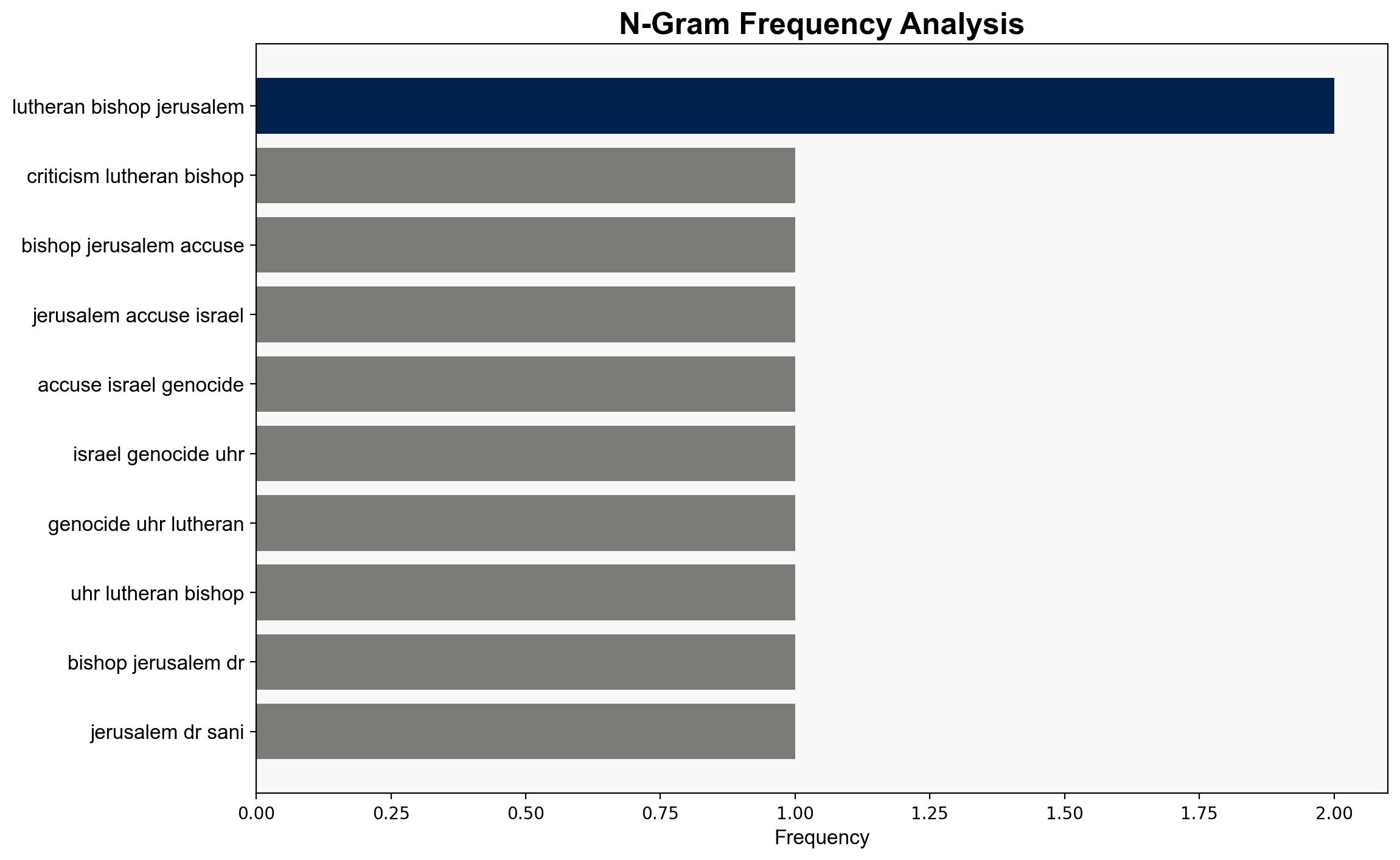Criticism as Lutheran bishop in Jerusalem accuses Israel of genocide – Dpa-international.com
Published on: 2025-11-01
Intelligence Report: Criticism as Lutheran bishop in Jerusalem accuses Israel of genocide – Dpa-international.com
1. BLUF (Bottom Line Up Front)
The accusation by Dr. Sani Ibrahim Azar against Israel of committing genocide in Gaza has sparked significant controversy and diplomatic tension, particularly involving German officials. The most supported hypothesis suggests this statement is a strategic move to draw international attention to the Palestinian plight. Confidence level: Moderate. Recommended action: Monitor diplomatic interactions and public statements from involved parties to assess shifts in international relations and public sentiment.
2. Competing Hypotheses
1. **Hypothesis A**: Dr. Azar’s statement is a deliberate attempt to escalate international pressure on Israel by framing the conflict in terms of genocide, thereby seeking to galvanize global support for the Palestinian cause.
2. **Hypothesis B**: The statement is primarily a personal expression of frustration and does not reflect a coordinated strategy, thus unlikely to significantly alter international dynamics.
Using ACH 2.0, Hypothesis A is better supported due to the context of the statement being made during a significant religious service and its immediate impact on international diplomatic discourse, particularly with the German delegation’s reaction.
3. Key Assumptions and Red Flags
– **Assumptions**: It is assumed that Dr. Azar’s statement was intended for international audiences and not just local congregants. It is also assumed that the German delegation’s reaction reflects broader European sentiment.
– **Red Flags**: The absence of direct evidence linking the statement to a broader Palestinian strategy and the potential for cognitive bias in interpreting religious rhetoric as political strategy.
– **Inconsistent Data**: Lack of clarity on whether Dr. Azar’s statement aligns with the official stance of the Evangelical Lutheran Church in Jordan and the Holy Land.
4. Implications and Strategic Risks
The statement could exacerbate tensions between Israel and European nations, potentially influencing EU policy towards the Israeli-Palestinian conflict. It may also embolden other religious or political leaders to make similar accusations, increasing diplomatic isolation for Israel. There is a risk of escalating rhetoric leading to increased regional instability.
5. Recommendations and Outlook
- Monitor subsequent statements from Dr. Azar and related religious or political figures to gauge potential shifts in rhetoric or strategy.
- Engage in diplomatic dialogue with European allies to mitigate potential fallout and clarify positions.
- Scenario-based projections:
- Best: The statement prompts renewed peace negotiations with international mediation.
- Worst: Increased diplomatic isolation for Israel, leading to economic sanctions or reduced cooperation.
- Most Likely: Continued diplomatic tensions with periodic escalations in rhetoric.
6. Key Individuals and Entities
– Dr. Sani Ibrahim Azar
– Andr Kuper
– Evangelical Lutheran Church in Jordan and the Holy Land
– German delegation from North Rhine-Westphalia
7. Thematic Tags
national security threats, geopolitical tensions, international diplomacy, religious influence





